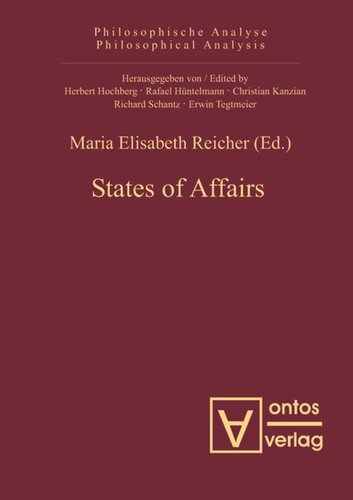

Most ebook files are in PDF format, so you can easily read them using various software such as Foxit Reader or directly on the Google Chrome browser.
Some ebook files are released by publishers in other formats such as .awz, .mobi, .epub, .fb2, etc. You may need to install specific software to read these formats on mobile/PC, such as Calibre.
Please read the tutorial at this link: https://ebookbell.com/faq
We offer FREE conversion to the popular formats you request; however, this may take some time. Therefore, right after payment, please email us, and we will try to provide the service as quickly as possible.
For some exceptional file formats or broken links (if any), please refrain from opening any disputes. Instead, email us first, and we will try to assist within a maximum of 6 hours.
EbookBell Team

4.7
86 reviewsStates of affairs raise, among others, the following questions: What kind of entity are they (if there are any)? Are they contingent, causally efficacious, spatio-temporal and perceivable entities, or are they abstract objects? What are their constituents and their identity conditions? What are the functions that states of affairs are able to fulfil in a viable theory, and which problems and prima facie counterintuitive consequences arise out of an ontological commitment to them? Are there merely possible (non-actual, non-obtaining) states of affairs? Are there molecular (i.e., negative, conjunctive, disjunctive etc.) states of affairs? Are there modal and tensed states of affairs? In this volume, these and other questions are addressed by David M. Armstrong, Marian David, Herbert Hochberg, Uwe Meixner, L. Nathan Oaklander, Peter Simons, Erwin Tegtmeier and Mark Textor.